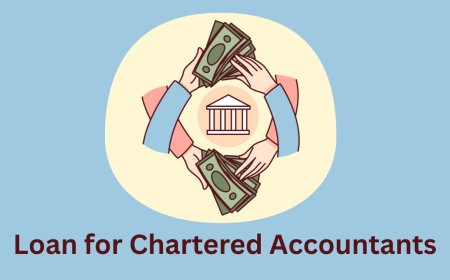Navigating the Future The Power of Strategic Planning Facilitation
I could use this space to tell you about my being a proven executive, business owner, CEO and all that other blah, blah, blah but what I really want to tell you is how much I love coaching.

In today's rapidly evolving landscape, organizations of all sizes face constant pressure to adapt, innovate, and thrive. Merely reacting to change is no longer enough; proactive, informed decision-making is paramount. This is where strategic planning comes into its own a deliberate, disciplined effort to define an organization's future, set its direction, and make decisions on allocating its resources to pursue that direction.
However, the path to a robust strategic plan is often fraught with challenges. Internal biases, conflicting priorities, communication breakdowns, and a lack of clear vision can derail even the best intentions. This is precisely why the role of a strategic planning facilitator is not just beneficial, but often indispensable.
Beyond the Buzzword: What is Strategic Planning Facilitation?
At its core, strategic planning facilitation is the art and science of guiding a group through the complex process of developing a strategic plan. Its about creating a structured, inclusive, and productive environment where key stakeholders can openly discuss, debate, and ultimately agree upon the organization's future direction.
A skilled facilitator doesn't dictate the strategy; they orchestrate its emergence. They are not an expert in your industry, nor should they be. Their expertise lies in the process itself in fostering constructive dialogue, managing group dynamics, ensuring all voices are heard, and keeping the planning effort on track and aligned with its objectives.
Why Invest in a Strategic Planning Facilitator?
The benefits of engaging an external facilitator for your strategic planning efforts are manifold:
-
Objectivity and Neutrality: An outside facilitator brings a fresh perspective, free from internal politics, pre-existing assumptions, and departmental biases. This neutrality is crucial for fostering open and honest discussions, allowing participants to challenge the status quo without fear of repercussion. They can ask the difficult questions that internal staff might hesitate to raise.
-
Enhanced Engagement and Buy-in: A well-facilitated process ensures that all relevant stakeholders from executive leadership to front-line staff are actively involved and have a voice. When people feel heard and contribute to the plan's development, they develop a greater sense of ownership and commitment, leading to stronger buy-in and more successful implementation.
-
Structured Process and Efficiency: Strategic planning can be messy and overwhelming. A facilitator provides a clear, proven framework and methodology, ensuring the process is efficient, focused, and productive. They manage time, keep discussions on topic, and guide the group through each critical stage, from environmental analysis and visioning to goal setting and action planning. This prevents "analysis paralysis" and ensures forward momentum.
-
Improved Communication and Collaboration: Facilitators are experts in group dynamics and communication techniques. They can bridge communication gaps, mediate conflicts, and encourage constructive dialogue among diverse perspectives. This fosters a more collaborative environment, leading to richer insights and more comprehensive solutions.
-
Focus on the Big Picture: Internal teams can often get bogged down in day-to-day operational details. A facilitator helps the group elevate their thinking, keeping the focus squarely on the long-term vision, strategic objectives, and the broader external landscape. They ensure that the strategic discussions don't devolve into operational planning prematurely.
-
Accountability and Actionable Outcomes: A good facilitator ensures that the planning process culminates in concrete, actionable outcomes. This includes clearly defined goals, measurable objectives, specific strategies, and assigned responsibilities. They help the group move from high-level aspirations to a practical roadmap for execution, fostering a culture of accountability.
The Facilitator's Toolkit: What to Expect
A strategic planning facilitator employs a range of tools and techniques to guide your organization through the process. These might include:
-
Pre-Planning Interviews: To understand the organization's current state, challenges, and aspirations.
-
SWOT Analysis: Identifying Strengths, Weaknesses, Opportunities, and Threats.
-
PESTLE Analysis: Examining Political, Economic, Social, Technological, Legal, and Environmental factors.
-
Vision and Mission Statement Development: Crafting inspiring and guiding statements.
-
Brainstorming and Ideation Sessions: Generating innovative ideas and solutions.
-
Prioritization Techniques: Helping the group focus on the most impactful initiatives.
-
Decision-Making Frameworks: Guiding the group towards consensus and clear choices.
-
Action Planning Workshops: Translating strategy into tangible steps and responsibilities.
Choosing the Right Facilitator
When selecting a strategic planning facilitator, look for someone with:
-
Proven Experience: A track record of successfully facilitating strategic planning sessions for organizations of similar size and complexity.
-
Strong Communication and Interpersonal Skills: The ability to connect with diverse personalities and foster an inclusive environment.
-
Process Expertise: A deep understanding of strategic planning methodologies and frameworks.
-
Neutrality and Objectivity: A commitment to guiding, not dictating.
-
Excellent Listening Skills: The capacity to truly understand the organization's unique context and challenges.
Conclusion
Strategic planning is not a one-off event; its an ongoing journey of adaptation and growth. While challenging, it's also incredibly rewarding, offering a clear roadmap to a more prosperous future. By leveraging the expertise of a strategic planning facilitator, organizations can transform a potentially arduous process into a highly engaging, productive, and ultimately successful endeavor. It's an investment that pays dividends in clarity, alignment, and ultimately, sustained organizational success.

































